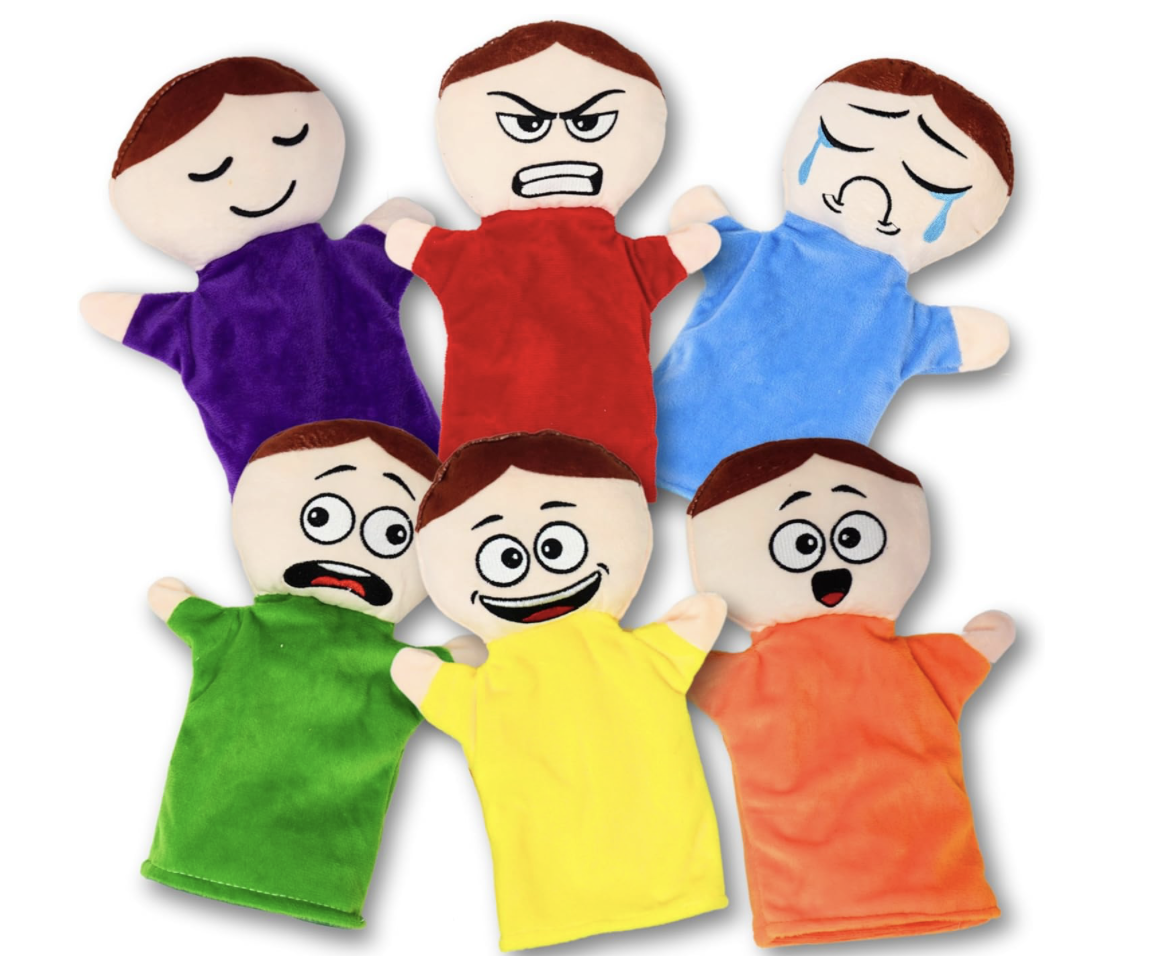SOCIAL AND EMOTIONAL- Fostering Emotional Intelligence in Preschoolers- A Guide for Educators and Parents
In the early years of childhood, emotional intelligence lays the groundwork for success in relationships, academics, and life. As educators and parents, we have the privilege and responsibility to nurture these essential skills in preschoolers, helping them develop into empathetic, resilient, and socially adept individuals. Let's explore how to cultivate each of the five social-emotional competences and their subcategories tailored to the unique needs of preschool children.
1. Self-Awareness:
Identifying Emotions: Preschoolers are learning to recognize and label their feelings. Encourage them to express their emotions through words, art, or play.
Accurate Self-Perception:
Help children develop a positive sense of self by acknowledging their strengths and supporting their self-expression.
Recognizing Strengths: Highlight children's unique talents and abilities, fostering confidence in their capabilities and promoting a healthy self-esteem.
Self-Confidence: Encourage children to try new things and take risks, providing support and praise for their efforts and achievements.
Self-Efficacy: Guide children in setting and achieving realistic goals, empowering them to believe in their ability to succeed.
Mood meter preschool
Coming soon!
“As an Amazon Associate, I earn from qualifying purchases.”
“As an Amazon Associate, I earn from qualifying purchases.”
“As an Amazon Associate, I earn from qualifying purchases.”
“As an Amazon Associate, I earn from qualifying purchases.”
“As an Amazon Associate, I earn from qualifying purchases.”
“As an Amazon Associate, I earn from qualifying purchases.”
“As an Amazon Associate, I earn from qualifying purchases.”
“As an Amazon Associate, I earn from qualifying purchases.”
“As an Amazon Associate, I earn from qualifying purchases.”
“As an Amazon Associate, I earn from qualifying purchases.”
2. Social-Awareness:
Perspective-Taking: Teach children to consider others' feelings and perspectives, promoting empathy and understanding in social interactions.
Empathy: Encourage children to recognize and respond to others' emotions with kindness and compassion, fostering positive relationships.
Appreciating Diversity Expose children to diverse cultures, backgrounds, and experiences, celebrating differences and promoting inclusivity.
Respect for Others: Model and reinforce respectful behavior towards peers and adults, emphasizing the importance of treating others with kindness and consideration.
Relationship Skills: Provide opportunities for children to practice communication, cooperation, and conflict resolution in social settings.
“As an Amazon Associate, I earn from qualifying purchases.”
“As an Amazon Associate, I earn from qualifying purchases.”
“As an Amazon Associate, I earn from qualifying purchases.”
“As an Amazon Associate, I earn from qualifying purchases.”
“As an Amazon Associate, I earn from qualifying purchases.”
3. Responsible Decision Making:
Identifying Problems: Support children in recognizing and articulating challenges they encounter, empowering them to seek solutions.
Analyzing Situations: Help children break down problems into manageable parts, encouraging critical thinking and problem-solving skills.
Solving Problems: Guide children through the process of brainstorming and implementing solutions, fostering independence and resourcefulness.
Evaluating: Encourage children to reflect on the outcomes of their actions, promoting self-awareness and learning from experiences.
Reflecting: Facilitate discussions and journaling activities that encourage children to reflect on their feelings, actions, and choices.
Ethical Responsibility: Teach children about fairness, honesty, and respect for others, emphasizing the importance of making ethical decisions.
“As an Amazon Associate, I earn from qualifying purchases.”
“As an Amazon Associate, I earn from qualifying purchases.”
4. Self-Management:
Impulse Control: Provide strategies such as deep breathing or counting to help children manage impulses and regulate their behavior.
Stress Management: Teach relaxation techniques like mindfulness or progressive muscle relaxation to help children cope with stress and anxiety.
Self-Discipline: Establish routines and expectations to promote self-control and consistency in behavior.
Self-Motivation: Encourage intrinsic motivation by fostering a love of learning and providing opportunities for children to pursue their interests.
Goal-Setting: Support children in setting achievable goals and breaking them down into manageable steps, celebrating progress along the way.
“As an Amazon Associate, I earn from qualifying purchases.”
“As an Amazon Associate, I earn from qualifying purchases.”
“As an Amazon Associate, I earn from qualifying purchases.”
“As an Amazon Associate, I earn from qualifying purchases.”
“As an Amazon Associate, I earn from qualifying purchases.”
“As an Amazon Associate, I earn from qualifying purchases.”
“As an Amazon Associate, I earn from qualifying purchases.”
5. Relationship Skills:
Communication: Model effective communication skills and provide opportunities for children to practice expressing themselves verbally and nonverbally.
Social Engagement: Create a supportive and inclusive environment where children feel comfortable interacting with peers and adults.
Relationship-Building: Encourage children to develop positive relationships by showing kindness, sharing, and cooperating with others.
Teamwork: Provide opportunities for collaborative activities that require children to work together towards a common goal, fostering cooperation and collaboration.
Whatever it is, the way you tell your story online can make all the difference.
Incorporating these strategies into both home and classroom environments can help cultivate emotional intelligence in preschoolers, setting them on a path towards social and academic success. By fostering self-awareness, social awareness, responsible decision-making, self-management, and relationship skills, we can empower children to navigate the complexities of the world with confidence, compassion, and resilience. Together, let's support the emotional development of our youngest learners, laying the foundation for a lifetime of healthy relationships and personal fulfillment.


























